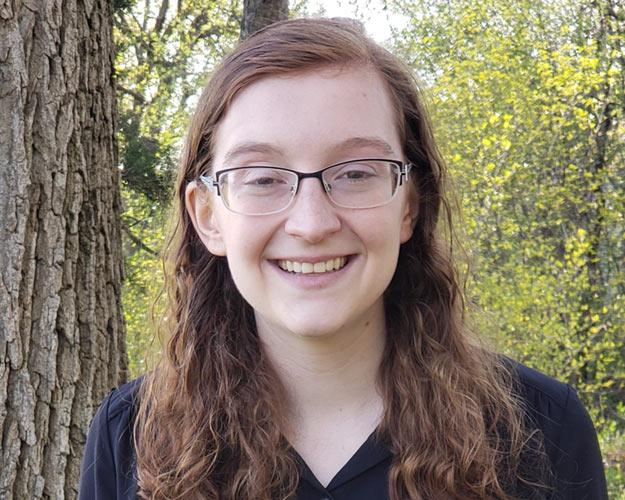Nina Galanter, a doctoral student in biostatistics at the University of Washington School of Public Health, is the recipient of a 2021 National Science Foundation (NSF) Graduate Research Fellowship.

The fellowship recognizes and supports outstanding graduate students in NSF-supported science, technology, engineering and mathematics (STEM) disciplines. Each year, more than 12,000 students apply for one of 2,000 awards. The fellowship comes with three years of funding, which Galanter said gives her “the opportunity to focus my time on research that is relevant to my dissertation and academic goals.”
The project Galanter proposed in her application is about methods for estimating rules to assign treatments to individuals while controlling negative outcomes such as cost or side effects. She will conduct this research in conjunction with Marco Carone, associate professor of biostatistics and the Norman Breslow Endowed Faculty Fellow, and Alex Luedtke, assistant professor of statistics and adjunct assistant professor of biostatistics.
Galanter currently works with Luedtke and Carone on a project to determine plausible ranges for the amount of treatment effect variance present in a trial comparing two treatments, based on summary statistics of the trial. This provides a measure of the possible improvement gained by using a rule that assigns treatments to individuals instead of using one treatment for everyone, which could help researchers determine when it is worthwhile to collect new data to learn individualized rules.
Galanter also works as a research assistant to Susan Shortreed, senior investigator at Kaiser Permanente Washington Health Research Institute and a UW affiliate associate professor of biostatistics.
Her work with Shortreed explores methods for estimating rules to decide which treatment options are best for individuals based on characteristics such as past medical history and current symptoms.
“Specifically, we are looking at finding the best rules which use only one or two patient characteristics. We are applying the methods in the context of treating mental illnesses such as schizophrenia and major depression, where there are often several treatment options. The project is helpful in creating interpretable treatment rules and in identifying the variables on which investigators should focus future research to improve clinical outcomes,” said Galanter.
The NSF graduate research fellowship is the country's oldest fellowship program directly supporting graduate students in STEM fields, and has a long history of investing in students with demonstrated potential for significant achievements in science and engineering.